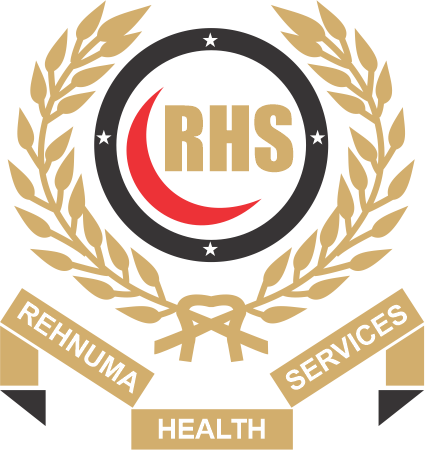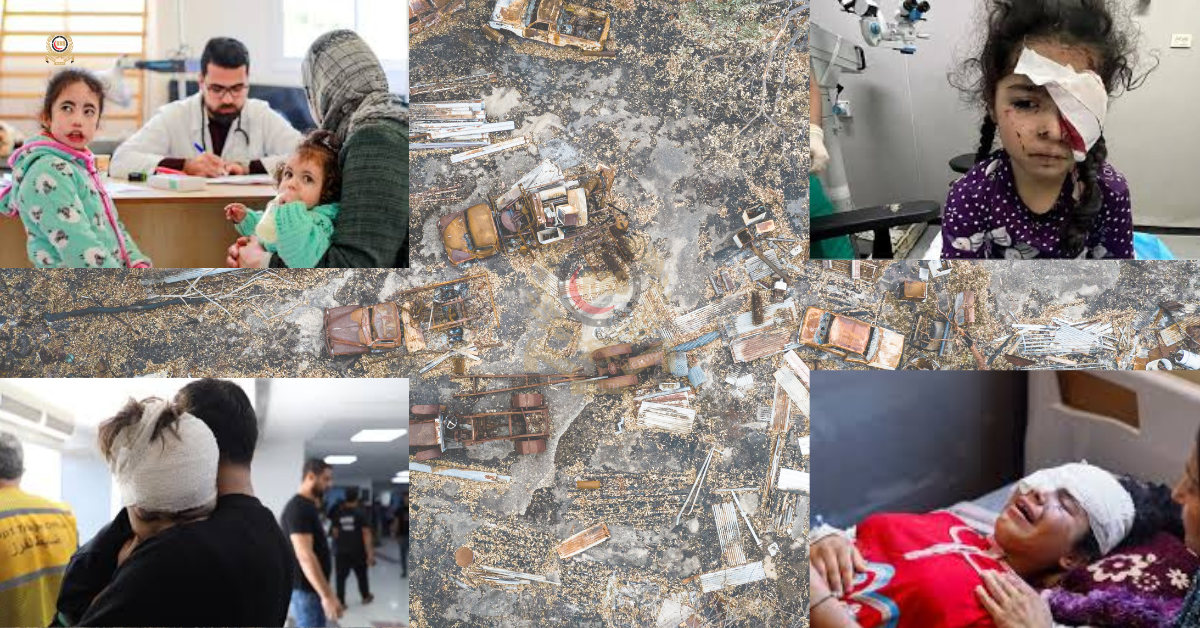In the shadow of the ongoing Middle East conflict, Gaza War Blinds 1500 Palestinians emerges as a harrowing symbol of suffering, devastation, and the price civilians pay in war. As Israeli airstrikes rain destruction over the Gaza Strip, home to over 2 million people, Gaza bombing causes blindness on an unprecedented scale, leaving more than 4,000 at risk of losing their vision. The escalating conflict, now marked by a silent epidemic of blindness, reveals a tragedy that remains underreported, yet deeply heartbreaking.
A City Reduced to Rubble and Ashes
The Gaza Strip, often described as the world’s largest open-air prison, continues to endure relentless bombardment. Israeli forces claim to be targeting militant hideouts, yet the majority of those affected remain innocent civilians. Residential areas, hospitals, schools, and even shelters are not spared. With every bomb dropped, eye trauma in the Gaza war becomes more prevalent, shattered glass, burning debris, and high-pressure shockwaves injuring countless eyes, stealing futures without warning.
The infrastructure is now in shambles. Essential medical facilities are either damaged or lack the resources to function. The consequences of this war extend beyond broken buildings. Gaza is witnessing the irreversible vision loss Gaza conflict has brought upon thousands.
Gaza Bombing Causes Blindness on a Mass Scale
Since October 7, 2023, Israeli air raids have rendered 1500 Palestinians blind, with nearly 4000 more at risk, as confirmed by local health authorities. According to Dr. Abdulsalam Sabah, Director of Gaza City’s Eye Hospital, the only specialized eye care facility is on the verge of collapse. With only three reusable surgical scissors, doctors are being forced to perform procedures under unsterile and dangerous conditions.
Critical supplies such as hyaluronic acid, fine surgical threads, and even basic antibiotics have been exhausted. The Israeli blockade since March 2, 2024, has effectively choked off the inflow of humanitarian and medical aid, further deteriorating the healthcare system’s ability to treat those suffering from blast-related ocular injuries.
While international outcries have attempted to intervene, children blind in Gaza remain victims of indifference and bureaucracy.
Children Blinded in Gaza: Innocence Lost in the Rubble
Yasmeen, Age 9: Light Turned to Darkness
Yasmeen, a bright and lively girl, was enjoying an evening with her younger brother when an explosion rocked her neighborhood. Shards of glass penetrated her delicate eyes, blinding her permanently. Her dreams of becoming an artist are now replaced by tactile learning and braille.
“She used to draw sunsets. Now she asks what color the sky is,” says her grieving mother.
Yasmeen is one of hundreds of children blind in Gaza, forced to adapt to a life they never imagined.
Omar, Age 17: A Future Lost
Once a promising engineering student, Omar was volunteering during a rescue mission when a secondary explosion stole his sight. He now advocates for blind youth in Gaza, hoping for treatment and dignity beyond the rubble. “I saw light vanish in a blink,” he recalls. “It was like the world closed its eyes to us.”
Eye Trauma in Gaza War: A Medical System on Life Support
Doctors in Gaza’s overwhelmed hospitals recount horror stories daily. Eye trauma in the Gaza war often includes multiple facial fractures, severe bleeding, and irreversible damage. Without immediate surgical intervention often impossible due to roadblocks, bombed hospitals, or lack of anesthesia, vision loss Gaza conflict becomes inevitable.
Dr. Ayman Al-Khatib from Al-Shifa Hospital explains:
“Children arrive with burnt faces, eyes hanging by a thread. We lack even simple, sterilized gauze to cover wounds.”
The Gaza bombing causes blindness, not just in numbers, but in stolen identities, lost childhoods, and severed ambitions.
Psychological Fallout: Blindness Beyond the Physical
War-induced blindness is not just a physical ailment. Survivors are plagued by PTSD, depression, and emotional trauma. In Gaza’s conservative culture, blindness often isolates individuals even further. Families of the blind, especially children, struggle to cope emotionally, financially, and socially.
Psychologist Dr. Reem Abu El-Qoms shares:
“These children are not just blind. They feel invisible. They suffer in silence, without proper support, without inclusive education.”
The Global Response: Words, But Little Action
Global organizations, including Human Rights Watch, the United Nations, and Doctors Without Borders, have criticized Israel’s actions, citing the disproportionate civilian toll and violations of international law. According to the UN OCHA, over 70% of those injured are civilians, many suffering from head, face, and eye trauma.
Despite this, aid remains blocked. Blind survivors in Gaza remain without access to adequate rehabilitation, prosthetics, mobility aids, or even psychological counseling. The voices calling for justice grow louder, but the victims still wait in darkness.
Rehabilitation in Crisis: A Scarred Future
The Gaza Society for the Care of the Blind is among the few organizations attempting to restore some semblance of normalcy. They provide basic vocational training and education, but are stretched far beyond capacity. Foreign NGOs such as the Red Crescent and Islamic Relief have offered support, yet their impact is limited by ongoing blockades and funding cuts.
True rehabilitation will require global intervention, political resolution, and above all, sustained compassion. Until then, children blind in Gaza will remain as reminders of a conflict the world has yet to resolve.
Conclusion: A Call from the Darkness
Gaza War Blinds 1500 Palestinians, but that figure is more than a statistic. It is the collective cry of a wounded people. It’s the sound of children calling for their mothers, young men remembering the last thing they saw, and doctors begging for tools to save what little vision remains.
This is not just a geopolitical crisis; it is a human catastrophe, with blindness symbolizing a future clouded by war. The world must act, not just react. It must be seen that those who cannot see. Only then can hope flicker again in Gaza’s enduring night.
We must rise beyond headlines and statistics. Donate to humanitarian organizations, press governments for policy changes, and advocate for unfiltered media coverage. The blind children of Gaza may never see light again, but your voice can help the world see them.




